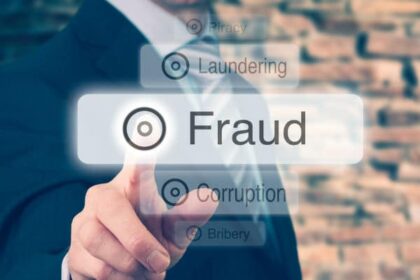Owner of Boston Cab Sentenced for Tax and Fraud Offenses
BOSTON – Edward J. Tutunjian, who has owned and operated Boston Cab through his company, EJT Management, Inc., for more than four decades, was sentenced today in U.S. District Court in Boston for payroll tax evasion, employing illegal aliens and for failing to pay overtime wages.
Tutunjian, 67, of Belmont, was sentenced by U.S. District Court Judge Douglas P. Woodlock to 20 months of probation, 18 months of which must be spent at Coolidge House, a community correctional facility in Boston. Tutunjian was also ordered to pay a fine of at least $28,999 per year to cover the cost of his confinement, or up to 25% of his income over the 18-month period, whichever is greater. Tutunjian already has paid $1,391,012 in restitution to the IRS for taxes, interest and penalties, and an additional $699,717 to the U.S. Department of Labor for distribution to employees for unpaid overtime wages. Tutunjian’s company, EJT, was also placed on 20 months of probation for aiding and abetting EJT employees in fraudulently obtaining housing subsidies for which they were not entitled. EJT has paid restitution of $219,307 to the U.S. Department of Housing and Urban Development (HUD).
In August 2016, Tutunjian pleaded guilty to five counts of tax evasion, one count of employing illegal aliens and one count of violating the Fair Labor Standards Act for failing to pay overtime wages. EJT Management, Inc. pleaded guilty to aiding and abetting the theft of public money.
Since approximately 1972, Tutunjian and EJT have operated the Boston Cab taxicab business in the greater Boston area. By 2014, Tutunjian and EJT owned approximately 372 taxi medallions – a government license permitting a car to be used to transport passengers for hire – which they leased to drivers and for which Tutunjian and EJT received millions of dollars in gross revenues each year, mostly in cash. Although the taxi drivers were self-employed, Tutunjian and EJT directly employed mechanics, dispatchers, office workers and others. A number of those employees were undocumented aliens who, because of their immigration status, were not authorized to work in the United States.
Tutunjian concealed the size of the company’s payroll from the IRS, and thereby concealed the amount of federal employment taxes he and EJT would be responsible for paying. He did this by paying employees entirely or partially in cash and keeping such cash payments off the books. By doing this, he ensured there would be no record of cash payments that could be inspected by the IRS. Employees who were illegal aliens, and therefore not authorized to work in the United States, were paid entirely in cash. EJT did not issue W-2 forms to those employees and did not withhold or pay federal income tax, Social Security tax, or Medicare tax with regard to those illegal alien employees.
Other employees who were U.S. citizens or legal permanent resident aliens received their wages partly in cash and partly by check. Tutunjian filed quarterly employment tax returns for EJT, which did not include the amounts that had been paid in cash to EJT employees. In this way, EJT evaded, and aided and abetted its employees in evading, approximately $739,204 in taxes from 2009 to 2013.
Tutunjian also did not pay the required overtime rate to employees who worked more than 40 hours a week. To conceal this, Tutunjian required certain employees to punch in 40 or fewer hours per week on an electronic time clock whose information was sent to the outside payroll company that prepared the payroll checks and W-2s, even though those employees had actually worked more than 40 hours per week, in some instances 50 or 60 hours a week. Tutunjian paid those workers in cash for their overtime hours, at the regular-time rate rather than the required time-and-a-half.
A number of EJT’s employees were living in federally subsidized housing in Cambridge and elsewhere, some of which had waiting lists for prospective tenants. The amount of the federal housing subsidy, as well as the eligibility to live in the units, depended on the tenant’s income. HUD did not rely solely on a tenant’s statement of his/her income, but also compared it to the tenant’s W-2 wages and generally required employers, such as EJT to, provide written verification. From January 2009 to about May 2013, EJT aided certain employees in receiving housing benefits to which they were not entitled, by providing payroll information, including W-2s, which did not reflect the wages paid to these employees in cash. Additionally, during the same period, EJT provided certifications to the state agency administering the housing subsidy program, which falsely reported the income of certain employees to be only the amounts paid by check, but which did not include the wages paid in cash.
United States Attorney Carmen M. Ortiz; Joel P. Garland, Special Agent in Charge of the Internal Revenue Service’s Criminal Investigation in Boston; Christina Scaringi, Special Agent in Charge of the U.S. Department of Housing and Urban Development, Office of Inspector General, Northeast Regional Office; Nikitas Splagounias, Assistant Special Agent in Charge of the U.S. Department of Labor, Office of Inspector General, Boston Field Division; Matthew Etre, Special Agent in Charge of Homeland Security Investigations in Boston; Boston Police Commissioner William Evans; and Acting Cambridge Police Commissioner Christopher Burke, made the announcement today. The Wage and Hour Division and the Employee Benefits Security Administration of the Department of Labor also assisted with the investigation. Assistant U.S. Attorney Sandra S. Bower of Ortiz’s Economic Crimes Unit prosecuted the case.

















